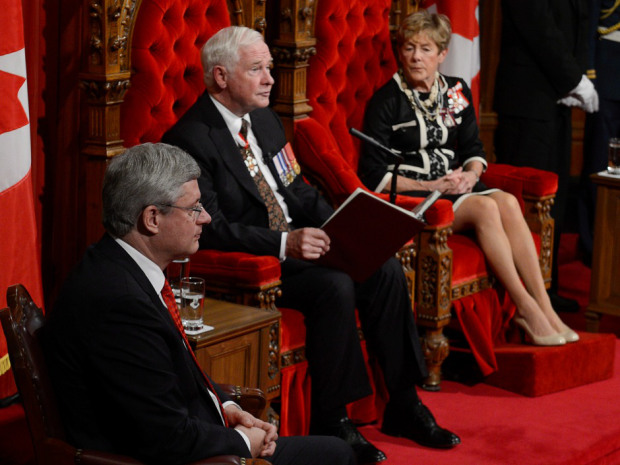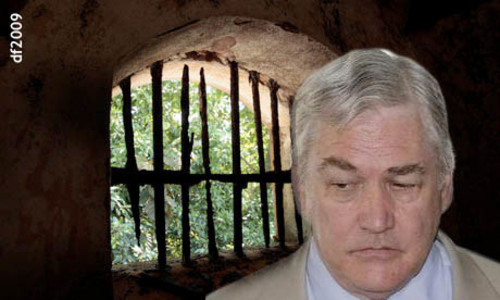In last week’s column, I argued that constitutional reform is necessary because Canada cannot go on indefinitely with Quebec not having officially subscribed to existing arrangements, and with no replacement for the unsuccessful attempts at federalization of institutions in the Meech Lake Accord of 1987 and then the Charlottetown Accord of 1992.
Meech Lake recognized Quebec as a distinct society, and that gesture has been enacted by the Harper government in a 2006 Parliamentary resolution. The Accord also provided for a constitutional veto for all provinces, increased provincial powers for immigration, reasonable compensation for provinces that opt out of federal programs in areas of exclusive provincial jurisdiction, and provincial input in the appointment of senators and Supreme Court justices. Quebec premier Robert Bourassa made it clear that this would not fully satisfy Quebec’s jurisdictional appetite.
I did not, and do not now, agree with a veto on amendments for every province. But Most of Meech Lake was inoffensive. And the new premier of Quebec, Philippe Couillard, indicated in his campaign that he would accept a durable constitutional settlement based on its principles. Charlottetown was more decentralizing, and although it had some interesting ingredients, especially the reduction of Ottawa’s ability to impose uniform programs in exchange for increased funding (the bane of our health care system), it was the classic confection of too many chefs.
I understand the wariness of those who fear a return to the wrangling and tortuosity of previous constitutional discussions. But Quebec, since Meech Lake and Charlottetown, has had another referendum, two more bouts of Parti Québécois government, and the reduction of that party to only 1% of the popular vote above what it attained in its first election as a new party in 1970. About 40% of Quebeckers are outright federalists, 20% are separatists, and the rest want some constitutional changes within Canada. It is an unstable but curable state of affairs, and should be addressed.
What is needed is a renewed fundamental agreement between the English- and French-speaking communities of the country, which can be largely negotiated between Ottawa and Quebec, with Ottawa keeping in mind the interests of all the other provinces and the non-French of Quebec. If that process achieves agreement, it could be presented to the other provinces in a spirit of reasonable flexibility. Given the right to opt out with full compensation for all provinces in their areas of jurisdiction, it should not be beyond the wit of our political class to agree on formulas for the Senate and the Supreme Court.
(As for last week’s unseemly exchange between the Prime Minister and the chief justice, the Nadon ruling was nonsense, and the Moldaver dissent was well-founded. But instead of churlishly impugning the propriety of the chief justice, the prime minister should assert the high court of Parliament: It is the government that must appoint the justices. There was no reason for the Chief Justice not to advise the minister that there could be a problem with the nominee.)
What follows is my answer to the many messages I have received from readers asking for my specific constitutional suggestions.
Where constitutional monarchies exist satisfactorily, as in the United Kingdom, they should be retained and are preferable to ceremonious presidents as in Italy or Germany, which are just stand-ins for deposed dynasties. The best republics are those where the president is the most important political officer as well as the chief of state, as in France and the United States; and the French model, which keeps a prime minister in the legislature to spare the president much of the partisan obloquy, is closer to what would be appropriate to Canada.
Pierre Trudeau proposed making the governor general “the first Canadian,” but the proposal did not have legs. The governor-general position is now an effete, costly, and pretentious dispensary of cultural and honorific patronage operated by an infestation of courtiers, and should be subsumed into the office of President And Governor-General, whose occupant would be the head of government and chief of state, but co-chief of state with the monarch of the United Kingdom and Canada when the monarch is physically present in this country.
There should be assured representation for the territories and special provision for senators from the First Nations chosen in their own elections
We would become the Republic and Kingdom of Canada; citizens of the republic would also be subjects of the crown of Canada. The President-Governor General would be elected popularly, as in France, with a run-off between the top two candidates if there were not a first ballot majority. Lieutenant governors could continue, acting in the name of both the president-governor general and the monarch.
Membership of the Senate should be stipulated as confined to people of distinguished attainments. There should be equal numbers of senators from Quebec, Ontario, and the total of the western provinces and territories, and half that regional number for the Atlantic provinces. Half of each group should be named by the federal government and half by the provinces following popular elections or elections by the legislature of each province and territory, as each decides. There should be assured representation for the territories and special provision for senators from the First Nations chosen in their own elections.
The Supreme Court should be expanded to 15, four each from the three main regions, two from the Atlantic provinces, half chosen by the federal government and half by the provinces and territories, and the chief justice chosen by the federal government subject to ratification by the legislatures of provinces representing a majority of Canadians.
None of this is advanced dogmatically, but it is a proposed starting point for what is now the necessary, and should be the stimulating, process of updating our political institutions. Serious countries create and renew their institutions of government. If not now, when? If not us, who?
National Post
cbletters@gmail.com

































Laissez un commentaire Votre adresse courriel ne sera pas publiée.
Veuillez vous connecter afin de laisser un commentaire.
Aucun commentaire trouvé